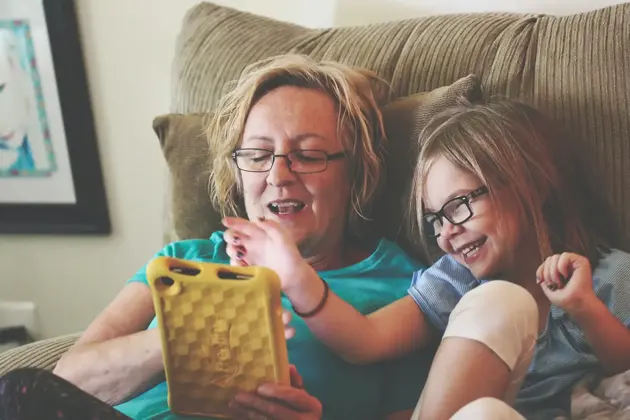What is fostering?
Fostering can offer children and young people a safe and caring home, while they are unable to live with their own family.

What Does Fostering Mean?
Fostering can offer children and young people a safe and caring home, while they are unable to live with their own family. It also can provide an opportunity for other professionals to work with the birth family to help resolve any current issues.
At Care Visions Fostering Scotland, we create positive environments in which fostering families can help children build confidence, for life.
Sadly, in Scotland, many children are unable to live with their families. For them, fostering provides a safe and stable home; helping them feel valued, ensuring their needs are met and giving them the best chance to develop.
Depending on the circumstances, there are a variety of levels of support that foster carers can provide children with, whether it be either short-term support or a long-term home.
We can define these as;
- Interim Care
- Long-term Care
- Permanence
- Short Break
- Emergency
Interim Placement
Life is full of challenges and this type of placement offers much needed relief from daily stresses for both children and their families until such times as they are able to return home or move to a longer-term placement.
Long-term Placement
When a child cannot return to their family, a long-term placement needs to be arranged. This can last for several years, and even become permanent if the circumstances are suitable. A long-term foster carer plays an extremely important role in a young person's development; providing support, guidance and love, to help them lead a confident and fulfilling adult life.
Permanence
When a child cannot return home, the next best thing is to find them a family who they can remain with for the duration of their childhood and where they feel they belong. Foster carers offering Permanence have the same level of support from Care Visions Fostering Scotland, however they also have more say in decision-making about the child's life.
Short Break
Some foster carers offer short break placements for children who might come and stay for a few days on all regular basis, or it may be a few weeks to help support the child or another foster carer.
Emergency Care
Sometimes, children require foster care at short notice, either until an ideal placement can be found, or until they return to their family. Emergency care ranges from one night to a few weeks, providing immediate reassurance and support.
If you're thinking about becoming a foster carer, but aren't sure of what the process entails, have a look at our 'Fostering Journey' graphic below. It provides some insight into the turns of the fostering journey and what to expect at each stage.

What is Foster Care and How Does it Work?
While adoptive parents assume full, permanent responsibility for a child, the primary focus of fostering is to reunite a “looked-after” child or young person with their families.
Fostering is a joint process where the carer, the local authority and the child’s family all work together as a partnership, providing support and care on either a long or short-term basis (you can find out more about the differences between adoption and fostering here).
To see whether fostering might be right for you, try taking our Readiness Quiz.
How To Apply
Foster carers may be approved by Local Authorities, Voluntary Organisations or Independent fostering agencies.
A list of registered fostering agencies can be found via the Care Inspectorate website -
Eligibility
You can foster a child if you are:
- Over 25 (this can vary depending on the agency)
- A full-time UK resident
- Single, married, divorced or living together as a couple
- LGBTQ+
- Already a parent
Reasons which might preclude you from becoming a foster carer;
- You have been convicted of a child-related offence
- You have been refused permission to act as a childminder
- You have been refused permission to run a day nursery
- Your child has been taken into local authority care
- You are not considered suitable for fostering
- The premises are considered unsuitable
- The arrangement is not considered to be in the child’s best interests.
The Process
Becoming a foster carer means that you will undertake an Assessment. This includes your:
- Medical History
- Finances
- Criminal record
- Health and Safety check to ensure your home is suitable for the child or young person
You will also need three “referees” - persons who know you well and can confirm that the information supplied by you is factually correct.
The completed Assessment report is reviewed by the fostering Panel, who then recommend your Approval as a foster carer, the age range of child you can look after, and the number of children(maximum of 3 children)
Following the assessment, your Approval will be reviewed on an Annual basis.
The Fostering Agreement
If approved, you will be asked to sign a fostering agreement. This written agreement between yourself and the agency is a requirement of the Looked After Children (Scotland) Regulations 2009 and provides the terms and conditions for you as a foster carer.
The agreement will include (but is not limited to) the following:
- An undertaking not to abuse the child in any way (the NSPCC has a guide on the various types of abuse and how to help keep children and young people safe). This includes No physical chastisement.
- Details of support and training you will receive.
- Fees, Allowances and other financial supports.
Your Role as a Foster Carer
It is important to understand the relationship between a child’s behaviour, emotions, development and their attachment relationships.
Many looked-after children and young people are taken into care under very difficult circumstances and as a result may have additional support needs to consider.
While fostering can be highly worthwhile and rewarding (both for foster parents and the children they care for), it can also be emotionally complex - which is why a key part of fostering training involves learning about attachment theory and how this relates to the role of Foster Carer.
For more detailed information on fostering, you can visit Citizens Advice for Scotland and The Fostering Network. More advice and guidance can also be found on our “Becoming a Foster Carer” page.

We are aware of the feelings and experiences of others. We care through relationships based on empathy, warmth and affection to restore and maintain trust and hope.

We live by our values and our actions demonstrate our commitment to them. We nurture potential and challenge appropriately.

We value others and will act in a way that communicates this. We recognise our differences and celebrate them. We listen to and care for each other.

We aim to protect people from harm. We recognise the impact trauma has and that sustained therapeutic relationships can have a positive impact. Our work is trauma-informed and based on attachment theory.